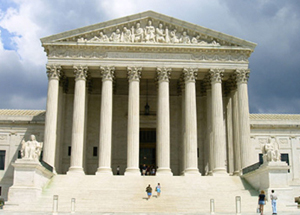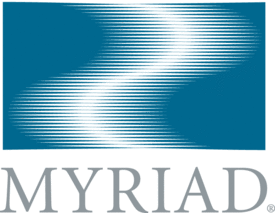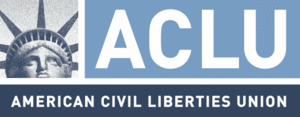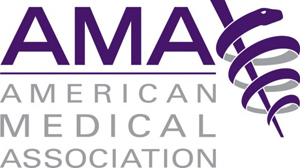 It has been just over two weeks since the Supreme Court issued its decision in Association for Molecular Pathology v. Myriad Genetics, Inc., holding that a naturally occurring DNA segment is a product of nature and not patent eligible merely because it has been isolated, and determining that cDNA is patent eligible (with one caveat) because it is not naturally occurring (see Patent Docs posts here and here). Although the Supreme Court has marched on, issuing decisions in Federal Trade Commission v. Actavis, Inc. and Mutual Pharmaceutical Co. v. Bartlett, a review of the initial reaction to the Court's decision in Myriad, given its potential impact, is certainly warranted.
It has been just over two weeks since the Supreme Court issued its decision in Association for Molecular Pathology v. Myriad Genetics, Inc., holding that a naturally occurring DNA segment is a product of nature and not patent eligible merely because it has been isolated, and determining that cDNA is patent eligible (with one caveat) because it is not naturally occurring (see Patent Docs posts here and here). Although the Supreme Court has marched on, issuing decisions in Federal Trade Commission v. Actavis, Inc. and Mutual Pharmaceutical Co. v. Bartlett, a review of the initial reaction to the Court's decision in Myriad, given its potential impact, is certainly warranted.
 In a statement issued by Myriad Genetics, the company noted that the Supreme Court had "upheld its patent claims on complementary DNA, or cDNA," but also "ruled that five of Myriad's claims covering isolated DNA were not patent eligible." Myriad indicated that despite the Court's decision on isolated DNA, the company still had "more than 500 valid and enforceable claims in 24 different patents conferring strong patent protection for its BRACAnalysis® test," and that "[i]mportantly, the Court noted that many of Myriad's unchallenged claims are method claims applying knowledge about the BRCA 1 and BRCA 2 genes." Myriad president and CEO Peter D. Meldrum expressed the company's belief that "the Court appropriately upheld our claims on cDNA, and underscored the patent eligibility of our method claims, ensuring strong intellectual property protection for our BRACAnalysis test moving forward."
In a statement issued by Myriad Genetics, the company noted that the Supreme Court had "upheld its patent claims on complementary DNA, or cDNA," but also "ruled that five of Myriad's claims covering isolated DNA were not patent eligible." Myriad indicated that despite the Court's decision on isolated DNA, the company still had "more than 500 valid and enforceable claims in 24 different patents conferring strong patent protection for its BRACAnalysis® test," and that "[i]mportantly, the Court noted that many of Myriad's unchallenged claims are method claims applying knowledge about the BRCA 1 and BRCA 2 genes." Myriad president and CEO Peter D. Meldrum expressed the company's belief that "the Court appropriately upheld our claims on cDNA, and underscored the patent eligibility of our method claims, ensuring strong intellectual property protection for our BRACAnalysis test moving forward."
 The American Civil Liberties Union (ACLU), which along with the Public Patent Foundation (PUBPAT) had filed suit against Myriad, released a statement focusing on the Court's decision regarding isolated DNA. Noting that the Court had "unanimously invalidated patents on two genes associated with hereditary breast and ovarian cancer," the ACLU contended that the patents had allowed Myriad "to control access to the genes, known as BRCA1 and BRCA2, thereby giving them the right to limit others from doing research or diagnostic testing of the genes," which "made it difficult for women to access alternate tests or get a comprehensive second opinion about their results." In summarizing the impact of the decision, PUBPAT Executive Director Daniel B. Ravicher stated that "[b]ottom line, diagnostic genetic testing is now free from any patent threat, forever, and the poor can now have their genes tested as freely as the rich."
The American Civil Liberties Union (ACLU), which along with the Public Patent Foundation (PUBPAT) had filed suit against Myriad, released a statement focusing on the Court's decision regarding isolated DNA. Noting that the Court had "unanimously invalidated patents on two genes associated with hereditary breast and ovarian cancer," the ACLU contended that the patents had allowed Myriad "to control access to the genes, known as BRCA1 and BRCA2, thereby giving them the right to limit others from doing research or diagnostic testing of the genes," which "made it difficult for women to access alternate tests or get a comprehensive second opinion about their results." In summarizing the impact of the decision, PUBPAT Executive Director Daniel B. Ravicher stated that "[b]ottom line, diagnostic genetic testing is now free from any patent threat, forever, and the poor can now have their genes tested as freely as the rich."
 The American College of Medical Genetics and Genomics (ACMG), one of the plaintiffs in the suit, applauded the Court's decision in a statement calling the result "a thrilling victory for patients." The ACMG, however, noted that its "preferred outcome would have gone even further and found that any form of a gene is not patentable because it is the information content that is naturally occurring regardless of whether its genomic or cDNA." The ACMG expressed "hope that [the decision that human genes are not patentable] will eventually include cDNA also."
The American College of Medical Genetics and Genomics (ACMG), one of the plaintiffs in the suit, applauded the Court's decision in a statement calling the result "a thrilling victory for patients." The ACMG, however, noted that its "preferred outcome would have gone even further and found that any form of a gene is not patentable because it is the information content that is naturally occurring regardless of whether its genomic or cDNA." The ACMG expressed "hope that [the decision that human genes are not patentable] will eventually include cDNA also."
 In a statement issued by the Biotechnology Industry Organization (BIO), the biotech trade group indicated that the Court "summarily ruled that so-called cDNA remains eligible for patenting." Noting that "cDNA is the commercially most important form of DNA used in biotechnology," BIO suggested that the Court's decision "offers urgently-needed certainty for research-driven companies that rely on cDNA patents for investment in innovation." However, BIO asserted that the decision "represents a troubling departure from decades of judicial and Patent and Trademark Office precedent supporting the patentability of DNA molecules that mimic naturally-occurring sequences," adding that "the Court's decision could unnecessarily create business uncertainty for a broader range of biotechnology inventions."
In a statement issued by the Biotechnology Industry Organization (BIO), the biotech trade group indicated that the Court "summarily ruled that so-called cDNA remains eligible for patenting." Noting that "cDNA is the commercially most important form of DNA used in biotechnology," BIO suggested that the Court's decision "offers urgently-needed certainty for research-driven companies that rely on cDNA patents for investment in innovation." However, BIO asserted that the decision "represents a troubling departure from decades of judicial and Patent and Trademark Office precedent supporting the patentability of DNA molecules that mimic naturally-occurring sequences," adding that "the Court's decision could unnecessarily create business uncertainty for a broader range of biotechnology inventions."
The biotechnology trade group also observed that "[t]he United States is now the only developed country to take such a restrictive view of patent eligibility, signaling an unjustified indifference towards our global economic and scientific leadership in the life sciences." BIO suggested that patents on isolated DNA molecules have not "stifled research, harmed patients, or interfered with medical care, as numerous independent studies have repeatedly confirmed over the years." Instead, "[t]he past 25 years have seen an unprecedented explosion of research and scientific publication on the human genome and the genomes of bacterial and viral pathogens."
 The American Intellectual Property Law Association (AIPLA) expressed concern about the impact of the Court's decision in a statement distributed by e-mail. The AIPLA indicated that "by holding that cDNA molecules are eligible for patent protection but a sequence of DNA molecules isolated from their natural state by known techniques is not," the Court had "continued to cut back on the scope of technologies eligible for patent protection." While acknowledging that "human genes as they exist in the body are not eligible for patent protection," the group argued in its amicus brief that "the DNA molecules claimed here are compositions of matter that are both structurally and functionally different from human genes, and those differences are man-made."
The American Intellectual Property Law Association (AIPLA) expressed concern about the impact of the Court's decision in a statement distributed by e-mail. The AIPLA indicated that "by holding that cDNA molecules are eligible for patent protection but a sequence of DNA molecules isolated from their natural state by known techniques is not," the Court had "continued to cut back on the scope of technologies eligible for patent protection." While acknowledging that "human genes as they exist in the body are not eligible for patent protection," the group argued in its amicus brief that "the DNA molecules claimed here are compositions of matter that are both structurally and functionally different from human genes, and those differences are man-made."
AIPLA President Jeffrey I. D. Lewis noted that the group was "concerned that, while the Supreme Court has recognized the importance of patent protection to the health industry, [the Myriad decision] may throw into question patent protection for important technology that is critical to improving health for the public, and that has become the cornerstone of the biotech industry." He also noted that "the opinion in the case is remarkably short given the complex legal and scientific questions that were raised [and] it fails to clarify in any meaningful way the difference needed to change natural material into man-made material that is eligible for patent protection." While "[i]t remains to be seen how innovation will be affected by this new development," Mr. Lewis suggested that the decision "may even backfire on its proponents, leading to increased secrecy in research and reduced collaboration, so critical in today's research environment."
 FierceBiotech reported that:
FierceBiotech reported that:
Despite the shrill alarms that have been sounded over the case, there's widespread feeling that the ruling itself won't have a dramatic impact on biotechnology. Myriad has a well established position in the market at this point, and has been improving the quality of its test. And just because others can use the same sequences without fear of violating patents, it's unlikely that there will be a rush to offer competing tests given the expense and technology required to develop them.
 The American Medical Association (AMA), which joined with other health care organizations to file an amicus brief in the case, indicated in its statement that the group welcomed an end to human gene patents. Noting that it "has long advocated for a clear prohibition against human gene patents," the AMA called the Court's "unanimous rejection of patenting human genes . . . a clear victory for patients that will expand medical discovery and preserve access to innovative diagnosis and treatment options." The group said it was "pleased that the [J]ustices saw through the flawed premise that resulted in Myriad's exclusive patent awards and affirmed that human genes are products of nature and not patent eligible."
The American Medical Association (AMA), which joined with other health care organizations to file an amicus brief in the case, indicated in its statement that the group welcomed an end to human gene patents. Noting that it "has long advocated for a clear prohibition against human gene patents," the AMA called the Court's "unanimous rejection of patenting human genes . . . a clear victory for patients that will expand medical discovery and preserve access to innovative diagnosis and treatment options." The group said it was "pleased that the [J]ustices saw through the flawed premise that resulted in Myriad's exclusive patent awards and affirmed that human genes are products of nature and not patent eligible."